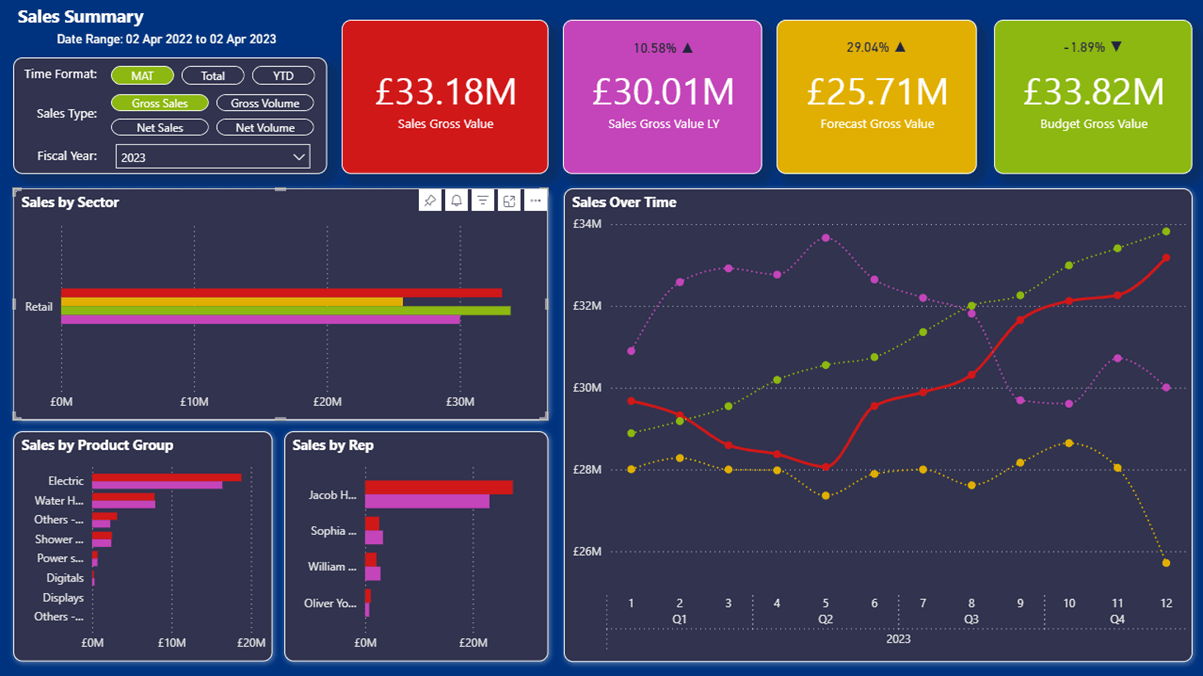Tech Tips
What worries do finance leaders have about Business Intelligence Tools?
Reservations and concerns about adopting and implementing BI tools In this third article it's time to look at fear, concerns and reservations! Finance Directors and CFOs may not necessarily be scared of business intelligence (BI) tools, but they might hav


Reservations and concerns about adopting and implementing BI tools
a bi-weekly series to help you get started on your data strategy journey.
In the first article in this series we looked at how Finance Leaders are becoming empowered to get on board with Business Intelligence.
In the second article in the series we looked at how Finance Leaders can use their own data for intelligent decision making.
With some straightforward pointers and not too much in the way of outside help, you can start to self-serve your own reports and financial information when you need it most.
If you missed it then do click on the link above.
Now it’s time to look at concerns, fears and reservations around the power of business intelligence to achieve insights they can act upon.
Finance Directors and CFOs may not necessarily be scared of business intelligence (BI) tools, but they might have concerns or reservations about adopting and implementing them in their organizations. These concerns can arise from various factors.
Let’s take a look at some of them and see if there any that resonate with you?
Complexity:
BI tools often come with a learning curve, and finance directors may worry that their finance teams may struggle to adapt to these new technologies. They might fear that the implementation process will disrupt daily operations or require significant training.
Data Accuracy:
Finance directors are responsible for ensuring the accuracy and integrity of financial data. They may worry that BI tools, if not properly configured or integrated, could lead to data discrepancies or errors that could have serious financial implications.
Cost:
Implementing BI tools can be expensive, both in terms of software licensing and hardware requirements. Finance Directors may be concerned about the return on investment (ROI) and whether the benefits of using BI tools will outweigh the costs.
Security and Data Privacy:
Financial data is highly sensitive, and finance directors must prioritize security and data privacy. They may have concerns about the security of BI tools, especially if they involve cloud-based solutions or third-party providers.
Resistance to Change:
Any significant change in an organization can face resistance from employees. Finance Directors may worry that their teams will resist using BI tools, preferring traditional methods they are comfortable with.
Integration Challenges:
BI tools often need to integrate with existing systems and databases. Finance Directors may be concerned about the complexity and potential disruptions during the integration process.
Overwhelming Data:
BI tools can generate a vast amount of data and analytics. Finance Directors may be worried about information overload and the challenge of extracting actionable insights from the data.
Misinterpretation of Data:
BI tools can provide a wide range of data visualizations and reports. Finance Directors may fear that their teams might misinterpret the data, leading to incorrect financial decisions.
Implementation Failures:
There is always a risk of the BI implementation project failing to meet expectations. Finance Directors may be apprehensive about the possibility of wasting time and resources on a failed project.
Regulatory Compliance:
Finance Directors must adhere to various financial regulations and reporting standards. They may be concerned that BI tools might not adequately support compliance requirements.
One of the things you can do to address these concerns is to conduct thorough due diligence, assess the specific needs of your organization, select appropriate BI tools, and ensure proper training and support for the rest of the finance teams. Involving key stakeholders in the decision-making process can also help alleviate these concerns and ensure successful BI tool implementation.
We do not want to minimise or trivialise any of these fears because we understand that they are all legitimate. But we can certainly try to put you at your ease in greater detail than we can go into here. Please get in touch HERE and let us know your concerns.
Power BI's accessibility and user-friendly features make it a valuable tool for finance professionals looking to leverage data for better decision-making.
So long as you follow some basic guidelines on defining objectives and ensuring data integration you will be on the way towards enhanced business intelligence for your company. Finally you have user-friendly visualizations to help you collaborate with colleagues and make more informed business decisions. Don’t forget to keep your training up to date for you and your team. PTR can help! Please get in touch HERE
We offer Data Strategy Consulting, Data Analytics Consulting, Power BI consulting and Microsoft Fabric Consulting and that’s just for starters. Please contact us for your bespoke training course.
Please contact caroline.atkinson@ptr.co.uk to find out how we can help you improve your data insights. Our Business Intelligence Consultants are here to guide you on your data journey.
Share This Post
Mandy Doward
Managing Director
PTR’s owner and Managing Director is a Microsoft certified Business Intelligence (BI) Consultant, with over 35 years of experience working with data analytics and BI.
Frequently Asked Questions
Couldn’t find the answer you were looking for? Feel free to reach out to us! Our team of experts is here to help.
Contact Us


